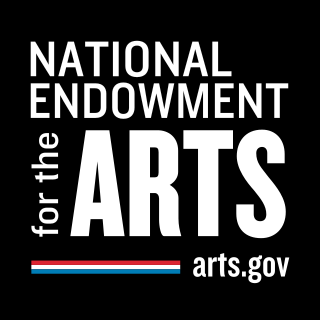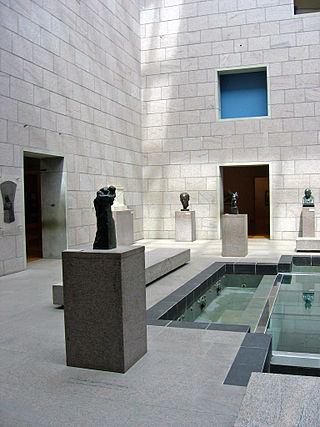
A cult film or cult movie, also commonly referred to as a cult classic, is a film that has acquired a cult following. Cult films are known for their dedicated, passionate fanbase which forms an elaborate subculture, members of which engage in repeated viewings, dialogue-quoting, and audience participation. Inclusive definitions allow for major studio productions, especially box-office bombs, while exclusive definitions focus more on obscure, transgressive films shunned by the mainstream. The difficulty in defining the term and subjectivity of what qualifies as a cult film mirror classificatory disputes about art. The term cult film itself was first used in the 1970s to describe the culture that surrounded underground films and midnight movies, though cult was in common use in film analysis for decades prior to that.

Cultural diversity is the quality of diverse or different cultures, as opposed to monoculture. It has a variety of meanings in different contexts, sometimes applying to cultural artifacts like music recordings or art works in museums, and sometimes applying to the variety of human cultures or traditions in a specific region, or in the world as a whole. It can also refer to the inclusion of different cultural perspectives in an organization or society.

Outsider art is art made by self-taught or supposedly naïve artists with typically little or no contact with the conventions of the art worlds. In many cases, their work is discovered only after their deaths. Often, outsider art illustrates extreme mental states, unconventional ideas, or elaborate fantasy worlds.

The National Endowment for the Arts (NEA) is an independent agency of the United States federal government that offers support and funding for projects exhibiting artistic excellence. It was created in 1965 as an independent agency of the federal government by an act of the U.S. Congress, signed by President Lyndon B. Johnson on September 29, 1965. It is a sub-agency of the National Foundation on the Arts and the Humanities, along with the National Endowment for the Humanities, the Federal Council on the Arts and the Humanities, and the Institute of Museum and Library Services.
Artistic freedom can be defined as "the freedom to imagine, create and distribute diverse cultural expressions free of governmental censorship, political interference or the pressures of non-state actors." Generally, artistic freedom describes the extent of independence artists obtain to create art freely. Moreover, artistic freedom concerns "the rights of citizens to access artistic expressions and take part in cultural life—and thus [represents] one of the key issues for democracy." The extent of freedom indispensable to create art freely differs regarding the existence or nonexistence of national instruments established to protect, to promote, to control or to censor artists and their creative expressions. This is why universal, regional and national legal provisions have been installed to guarantee the right to freedom of expression in general and of artistic expression in particular. In 2013, Ms Farida Shaheed, United Nations special rapporteur to the Human Rights Council, presented her "Report in the field of cultural rights: The right to freedom of expression and creativity" providing a comprehensive study of the status quo of, and specifically the limitations and challenges to, artistic freedom worldwide. In this study, artistic freedom "was put forward as a basic human right that went beyond the 'right to create' or the 'right to participate in cultural life'." It stresses the range of fundamental freedoms indispensable for artistic expression and creativity, e.g. the freedoms of movement and association. "The State of Artistic Freedom" is an integral report published by arts censorship monitor Freemuse on an annual basis.
Creative Australia, formerly known as the Australia Council for the Arts and the Australia Council, is the country's official arts council, serving as an arts funding and advisory body for the Government of Australia.

Judith "Jude" Pamela Kelly,, is a British theatre director and producer. She is a director of the WOW Foundation, which organises the annual Women of the World Festival, founded in 2010 by Kelly. From 2006 to 2018, she was Artistic Director of the Southbank Centre in London.
ART PAPERS is an Atlanta-based bimonthly art magazine and non-profit organization dedicated to the examination of art and culture in the world today. Its mission is to provide an independent and accessible forum for the exchange of perspectives on the role of contemporary art as a socially relevant and engaged discourse. This mission is implemented through the publication of ART PAPERS magazine and the presentation of public programs.

Cultural policy is the government actions, laws and programs that regulate, protect, encourage and financially support activities related to the arts and creative sectors, such as painting, sculpture, music, dance, literature, and filmmaking, among others and culture, which may involve activities related to language, heritage and diversity. The idea of cultural policy was developed at UNESCO in the 1960s. Generally, this involves governments setting in place processes, legal classifications, regulations, legislation and institutions which promote and facilitate cultural diversity and creative expressions in a range of art forms and creative activities. Cultural policies vary from one country to another, but generally they aim to improve the accessibility of arts and creative activities to citizens and promote the artistic, musical, ethnic, sociolinguistic, literary and other expressions of all people in a country. In some countries, especially since the 1970s, there is an emphasis on supporting the culture of Indigenous peoples and marginalized communities and ensuring that cultural industries are representative of a country's diverse cultural heritage and ethnic and linguistic demographics.

Option was a music magazine based in Los Angeles, California, US. It covered independent, underground and alternative music and multiple musical genres for an international subscription base. Its print run began in 1985 and ended in 1998.

The Substation is Singapore's first independent contemporary arts centre. It was founded in 1990 by Kuo Pao Kun. The Substation is centrally located in the city's civic district and was the first building under the National Arts Council's "Arts Housing Scheme". It officially opened on 16 September 1990. The Substation is a non-profit organisation and registered Institution of Public Character in Singapore, which relies on financial and in-kind support from the general public, commercial organisations and government ministries to cover the costs of operating and developing arts & educational programmes.

ELIA represents some 300.000 students in all art disciplines.

Sundance Institute is a non-profit organization founded by Robert Redford committed to the growth of independent artists. The institute is driven by its programs that discover and support independent filmmakers, theatre artists and composers from all over the world. At the core of the programs is the goal to introduce audiences to the artists' new work, aided by the institute's labs, granting and mentorship programs that take place throughout the year in the United States and internationally.

ZERO1: The Art and Technology Network is a 501(c)(3) non-profit organization dedicated to connecting creative explorers from art, science, and technology to provoke new ideas that serve to shape a more resilient future.
The Vera List Center for Art and Politics is an American nonprofit research organization and public forum for art, culture, and politics, established in 1992. Vera List was an American art collector and philanthropist.

Authenticity in art is manifest in the different ways that a work of art, or an artistic performance, can be considered authentic. The initial distinction is between nominal authenticity and expressive authenticity. In the first sense, nominal authenticity is the correct identification of the author of a work of art; of how closely an actor or an actress interprets a role in a stageplay as written by the playwright; of how well a musician's performance of an artistic composition corresponds to the composer's intention; and how closely an objet d’art conforms to the artistic traditions of its genre. In the second sense, expressive authenticity is how much the work of art possesses inherent authority of and about its subject, and how much of the artist's intent is in the work of art.
Basement Workshop emerged as the first Asian-American political and arts organization in New York City, in existence from 1970 to 1986. Created during the Asian American Movement, it became an umbrella organization for a diverse group of young Asian-Americans seeking creative and new ways of intersecting artistic expression with political and community activism. The rise of the Black Power Movement and protests against the Vietnam War provided a partial yet weighty backdrop for Basement’s inception.
The Moscow International Biennale for Young Art (MIBYA) is a major contemporary visual art exhibition that focuses on the work of artists and curators under the age of 35. It aims to bring together new artistic initiatives from Russia and the world by supporting the creative development of young artists for interested audiences. MIBYA was first held in 2008 in response to rising interest from artists, curators and critics following the festival of young art, "Qui Vive?" sponsored by the National Center for Contemporary Arts (NCCA) and held annually from 2002 to 2006, in collaboration with free workshops at the Moscow Museum of Modern Art (MMOMA). "The project has acquired new status thanks to growing interest from young artists, curators, and critics. Through the combined efforts of the NCCA and MMOMA, the biennial for young art was developed."
Iris Lam Chen is a Chinese-Costa Rican Arts manager and curator known for her work in visual arts project management at the Cultural Center of Spain nn Costa Rica, y artistic strategy in Global Metro Art (GMA), organization in which she is director and founder. Her work emphasizes themes related to feminism, the LGBTIQ+ community, migration, strategy, the artistic market, and inter-institutional alliances between public, private, independent and academic entities.











